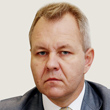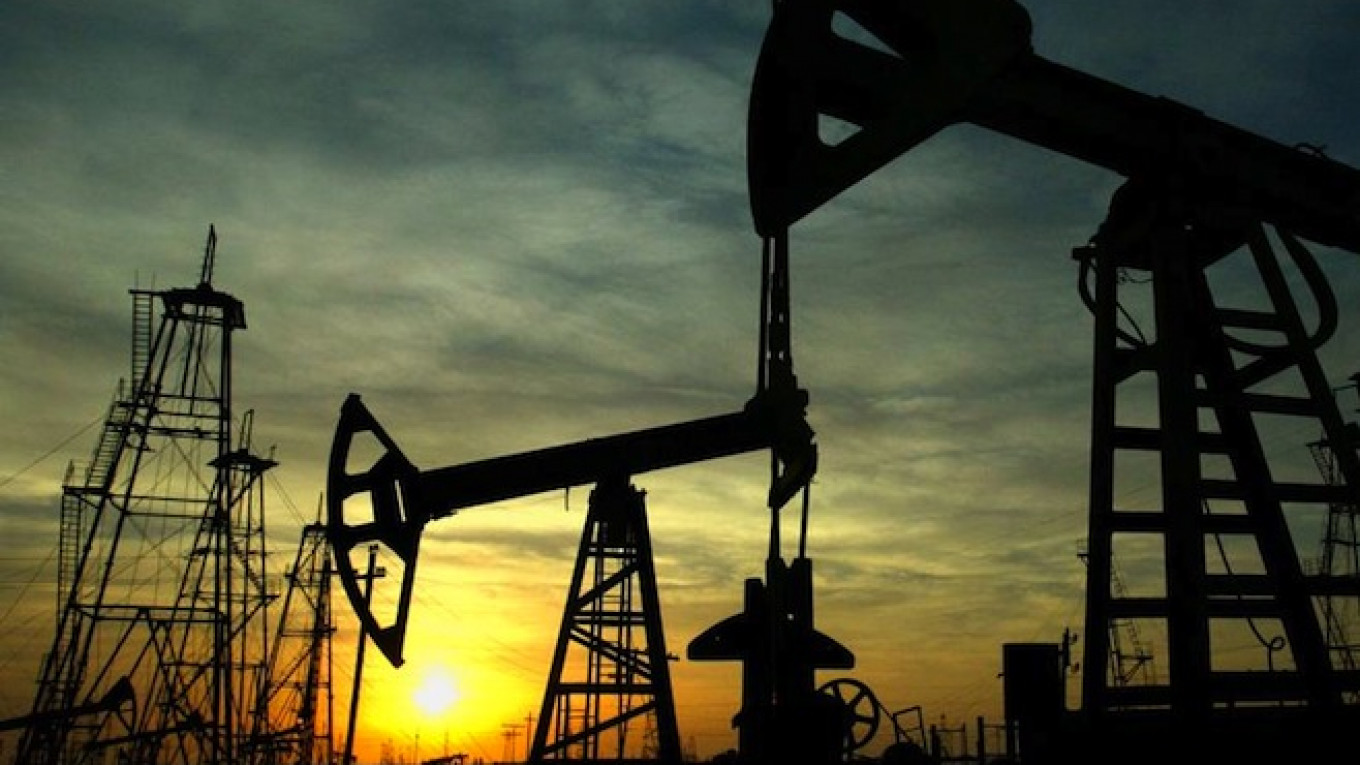
Vladislav Inozemtsev
This year got off to a bad start. Oil prices fell to below $30 per barrel and a budget deficit of at least 5 percent seemed inevitable. But now Russia's political elite is breathing a sigh of relief. Oil is up to more than $40 per barrel and experts are predicting that prices are more likely to continue climbing than to collapse, as they did in winter.
Of course, oil price trends cannot be forecast with any certainty. But financial officials recently stated that if oil remains between $40 and $50 per barrel, the economy will enter a "new reality." What does that mean?
It refers to a course toward moderate belt-tightening — higher taxes and stricter collection of them, as well as limiting imports through protectionist measures. Government propaganda must be stepped up to convince the Russian people that scheming foreigners are the cause of their problems, not their leaders' failed economic policy.
This is simply "milking the economy." Oil and gas revenues will fall. They totaled 7.43 trillion rubles in 2014, dropped to 5.86 trillion rubles in 2015 and could fall to 4.5 trillion rubles in 2016. Therefore, authorities will have to cut project investment, reduce funding to the regions and scale back financial incentives for state employees.
That will lead to further decline in an economy kept afloat by government investment and purchases. Import volumes have dropped to half of their 2014 level, which means a decline in VAT revenues from the sale of those goods.
The additional pressure that places on business, coupled with the reduction in state orders and the shrinking incomes of government employees will lead to production declines. The authorities will use Central Bank emissions and quasi-emissions to limit spending from the government's reserve fund, but that will not halt the recession. The 1.4 percent drop in gross domestic product during the first quarter of 2016 will only fuel further declines.
Economic recovery is unlikely in 2017; in fact, I expect Russia will see no economic growth even if oil prices rise to as much as $65-$70 per barrel.
Even if leaders manage to avoid cutting salaries for state employees and save money by eliminating the most useless expenditures, a general population frightened by the crisis and burdened by high interest rates is unlikely to increase personal spending. Higher oil prices will strengthen the ruble. That will result in lower profits for major raw materials corporations, thus reducing ruble revenues to the federal budget. Most businesspeople will continue to expect further stagnation and will be unlikely to invest in new projects.
Brent Oil Price (U.S. Dollars per Barrel)

If oil prices rise, authorities will readopt their 2010 attitude. At that time, they expected an imminent end to the crisis and immediately gave up on liberalizing business conditions or implementing economic structural reforms. Russia would enter a period of classic stagnation, marked by a lack of incentive for change.
This leads to a simple and rather pessimistic conclusion: Russia is trapped by its dependence on commodity markets.
Russia has no realistic plan for modernization, particularly given its isolation and lack of potential economic partners. Regardless of how oil prices and the ruble finally reach equilibrium, no qualitative change will result.
There are only two scenarios by which Russia could see renewed economic growth in the coming years.
The first requires continuously rising oil prices, as they previously did throughout President Vladimir Putin's terms in office.
However, data from the past decades indicates that oil prices must rise by 15-20 percent annually for economic growth to resume (all things being equal). In practical terms, that means oil prices must reach approximately $80 per barrel by 2018 and no less than $110 per barrel by 2020.
Such a scenario might provide economic growth of 2-4 percent per annum and return the Russian economy to 2008 levels by 2019-2020. However, that scenario is unlikely — the current price war and the sharp increase in supply from new forms of energy such as shale oil and biofuels could effectively cap prices at $60 per barrel.
There is a second option. Rather than implementing the necessary structural reforms, leaders could make it easier to do business in Russia by reinstating relatively free trade, returning a significant volume of land in central Russia to the marketplace, waiving taxes for new businesses, creating potent guarantees for foreign investment and launching mechanisms for stimulating demand.
The government could take the position that the creation of jobs and economic growth are temporarily more important than collecting taxes, and that it is better to let people earn money on their own than to put them on the government payroll. That would not require any radical political changes, but even that step remains unfeasible as long as Russia's business and government officials are so closely interconnected. Thus, this second scenario remains unlikely.
Therefore, even if oil prices become relatively high again, the new reality for Russia means coming to an almost unshakable near zero equilibrium in all areas: economic, social and political. Judging by the popularity of the ruling regime and its lack of accountability before the public, such a situation could last years — until the dilapidated post-Soviet economy finally produces major technological disasters or becomes deeply dysfunctional. But it will take another 3-5 years before that occurs.
Vladislav Inozemtsev is Director of the Center for Post-Industrial Studies and Berthold Beitz Fellow with the German Council on Foreign Relations (DGAP).
A Message from The Moscow Times:
Dear readers,
We are facing unprecedented challenges. Russia's Prosecutor General's Office has designated The Moscow Times as an "undesirable" organization, criminalizing our work and putting our staff at risk of prosecution. This follows our earlier unjust labeling as a "foreign agent."
These actions are direct attempts to silence independent journalism in Russia. The authorities claim our work "discredits the decisions of the Russian leadership." We see things differently: we strive to provide accurate, unbiased reporting on Russia.
We, the journalists of The Moscow Times, refuse to be silenced. But to continue our work, we need your help.
Your support, no matter how small, makes a world of difference. If you can, please support us monthly starting from just $2. It's quick to set up, and every contribution makes a significant impact.
By supporting The Moscow Times, you're defending open, independent journalism in the face of repression. Thank you for standing with us.
Remind me later.








